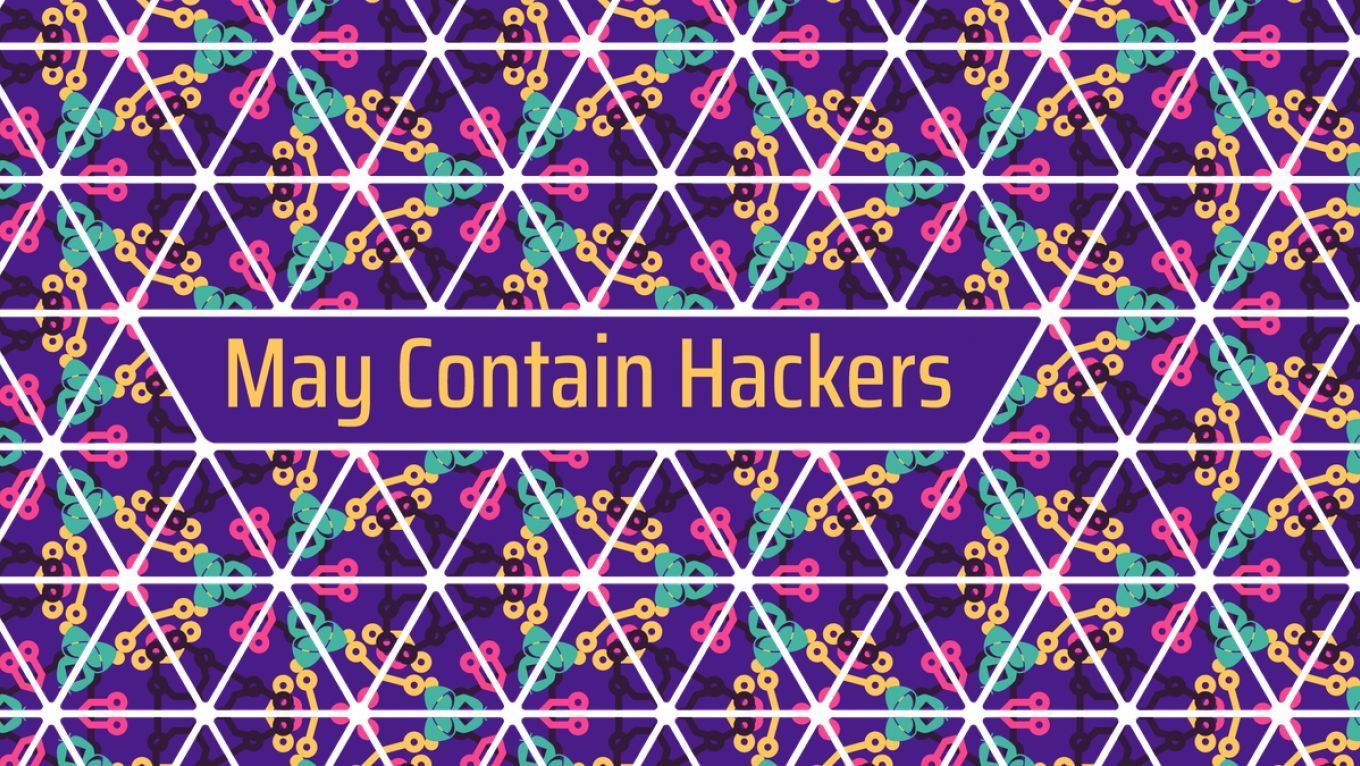MCH2022 Curated content
The MCH2022 Design
The MCH2022 design speaks for itself, but we would still nerd about it for a while. It is beautiful, colorful, generative, and has some physics ideas behind it. Some of it is obvious, but if you want to know all the hidden depths, this is the talk to visit.
The triangulair MCH2022 design is a colourfull generative kaleidoscope with some hidden depths. In that way it reflects the hacker community. It is in some ways a spiritual successor to the SHA2017 design, but it has its own look and feel. You can find it all around the field, on prints and stickers, on the website and on the event shirts.
Do you want to know the nitty gritty details of the optical physics, the generative basis and symmetric math ideas behind it? Some of it is obvious, but we would like to talk about it, and go deeper in on the concepts.
Additional information
| Type | Short Talk |
|---|---|
| Language | English |
More sessions
| 7/22/22 |
⚠️ Warning! This talk may contain hackers. There may be hackers in the room. There may be hackers surrounding the room. There may be hackers recording this. There may be hackers listening in. There may be hackers that exfiltrate data. There may be hackers wearing shirts. There may be hackers carrying spying devices. OH NO! There are hackers EVERYWHERE! What can we do now, except having a party?
|
| 7/22/22 |
What do big tech, synthesizers, the crucifixion and Matthäus Passion have in common? Find the answer in the tech performance The Silicon Passion. We’ve all embraced big tech —but is it a warm hug or a strangulation? Bear witness to a debate of biblical proportions between tech nerds, technology and its users. In The Silicon Passion SETUP, in collaboration with de Transmissie (David Schwarz en Derk Stenvers) and Rodrigo Ferreira, is looking for a way out of the pit that technology has ...
|
| 7/22/22 |
Lightning talks are a 5 to 10 minute quick talk on an interesting subject. They can be with or without slides, and with or without proper preparation. if you weren't accepted in the main CfP, this is also a great opportunity to give an abridged version of your talk. These sessions will be available to sign up to later on, with details on the wiki: https://wiki.mch2022.org/Static:Lightning_Talks
|
| 7/22/22 |
In this workshop, we will learn how to assemble tiny parts on circuit boards by building an electronic touch-activated purring kitten. Anyone can do it. Yes, even you who never touched anything electronic before. Takes 120mins, 20€/kit, avoid caffeine immediately before. Max 10 participants per session, sign up on PAPER at the Hardware Hacking Area.
|
| 7/22/22 |
This is a submission for a keynote talk at MCH2022. The Internet is both a familiar, comfortable place as well as a bottomless rabbit hole you can lose yourself in. The Internet has always been like this from its inception, the difference now is the scale and consequences are almost immeasurable - and it tests the limits of human imagination. When you look into the mirror of the Internet what you see reflected back depends on what you are looking for. It has become largely a reflection of ...
|
| 7/22/22 |
Have you ever forgotten a passphrase or lost a hardware token? Lost access to enough Bitcoin to buy a pizza or two? Encryption is fundamental to securing our liberties, but key and password management remain difficult even for professionals, let alone the general public. This talk presents Passcrow, an Open Source project attempting to address one of crypto's largest usability issues: password and key recovery in a decentralized environment.
|
| 7/22/22 |
Thanks to DNSSEC and DANE, it is possible to automatically verify user@domain.name identities by checking with domain.name servers. The real problem however, is integration with existing protocols, instead of inventing something completely new and perhaps web-only. The purpose of our work on Realm Crossover mechanisms has been to design generic solutions that extend many different application protocols, without changing their protocol specs.
|

